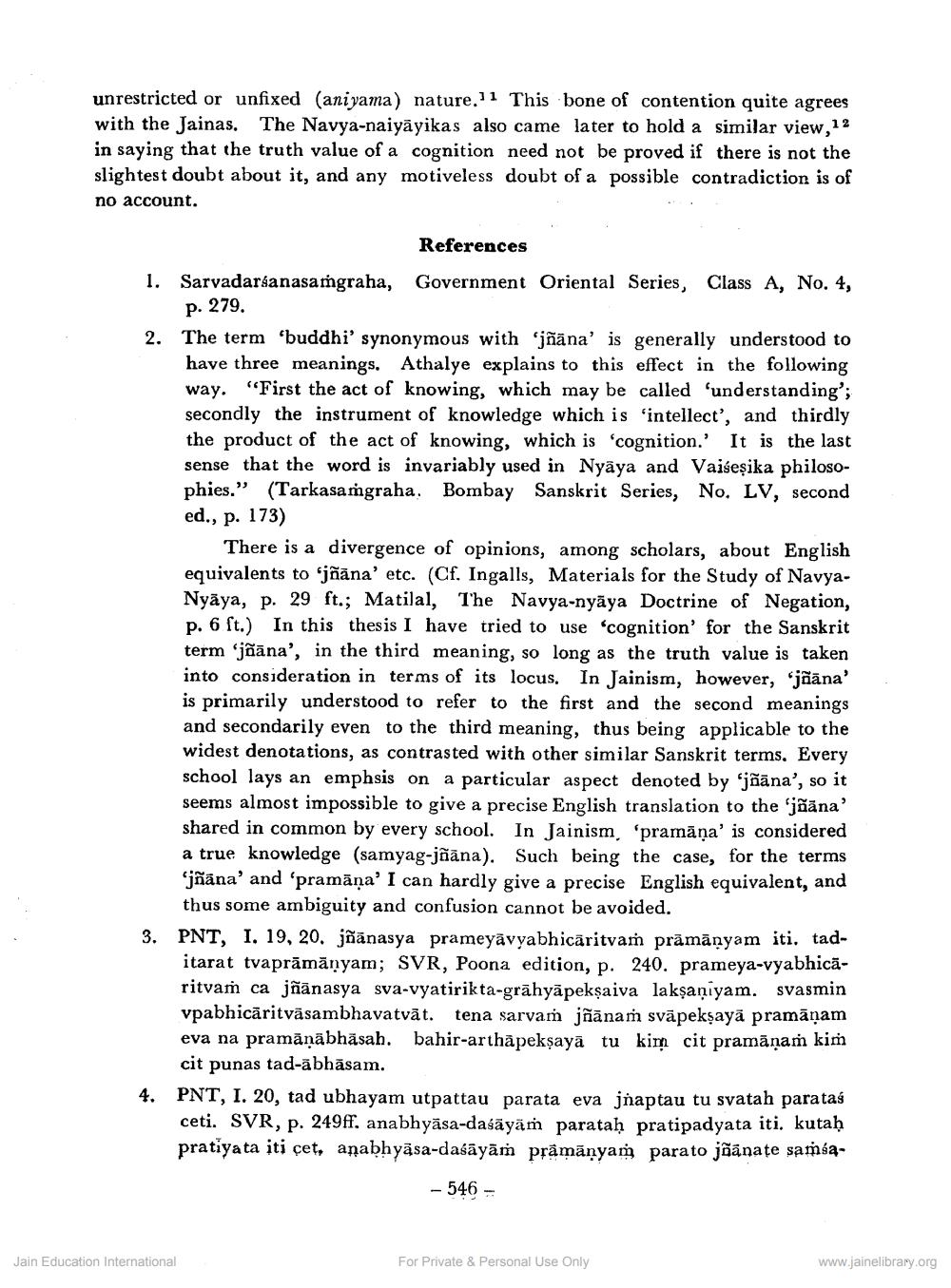________________
unrestricted or unfixed (aniyama) nature. This bone of contention quite agrees with the Jainas. The Navya-naiyayikas also came later to hold a similar view,12 in saying that the truth value of a cognition need not be proved if there is not the slightest doubt about it, and any motiveless doubt of a possible contradiction is of
no account.
References
1. Sarvadarśanasaṁgraha, Government Oriental Series, Class A, No. 4, p. 279.
2. The term 'buddhi' synonymous with 'jñāna' is generally understood to have three meanings. Athalye explains to this effect in the following way. "First the act of knowing, which may be called 'understanding'; secondly the instrument of knowledge which is 'intellect', and thirdly the product of the act of knowing, which is 'cognition. It is the last sense that the word is invariably used in Nyaya and Vaiseşika philosophies." (Tarkasamgraha. Bombay Sanskrit Series, No. LV, second ed., p. 173)
There is a divergence of opinions, among scholars, about English equivalents to 'jñāna' etc. (Cf. Ingalls, Materials for the Study of NavyaNyaya, p. 29 ft.; Matilal, The Navya-nyaya Doctrine of Negation, p. 6 ft.) In this thesis I have tried to use 'cognition' for the Sanskrit term 'jääna', in the third meaning, so long as the truth value is taken. into consideration in terms of its locus. In Jainism, however, 'jääna' is primarily understood to refer to the first and the second meanings and secondarily even to the third meaning, thus being applicable to the widest denotations, as contrasted with other similar Sanskrit terms. Every school lays an emphsis on a particular aspect denoted by 'jääna', so it seems almost impossible to give a precise English translation to the 'jñāna' shared in common by every school. In Jainism, 'pramaņa' is considered a true knowledge (samyag-jääna). Such being the case, for the terms. 'jñana' and 'pramäṇa' I can hardly give a precise English equivalent, and thus some ambiguity and confusion cannot be avoided.
3. PNT, I. 19, 20, jäänasya prameyavyabhicaritvam prämäṇyam iti. taditarat tvapramänуam; SVR, Poona edition, p. 240. prameya-vyabhicăritvam ca jñānasya sva-vyatirikta-grāhyāpekṣaiva lakṣaṇiyam. svasmin vpabhicäritväsambhavatvät. tena sarvam jäänaṁ svapekṣayā pramāņam eva na pramäṇābhasah. bahir-arthäpekṣaya tu kirp cit pramäṇaṁ kim cit punas tad-abhāsam.
4. PNT, I. 20, tad ubhayam utpattau parata eva jñaptau tu svatah paratas ceti. SVR, p. 249ff. anabhyasa-daäyäṁ paratah pratipadyata iti, kutab pratiyata iti cet, anabhyasa-daśāyām pramanyam parato janate sama
Jain Education International
-546
For Private & Personal Use Only
www.jainelibrary.org




